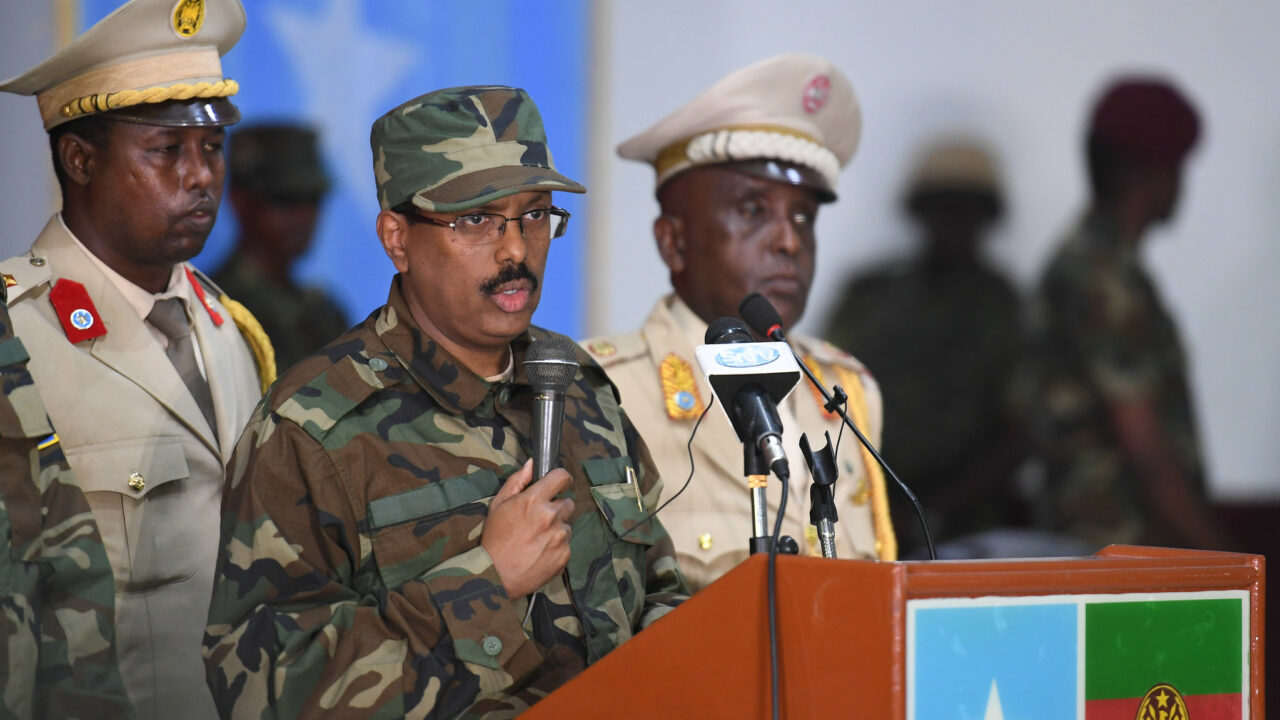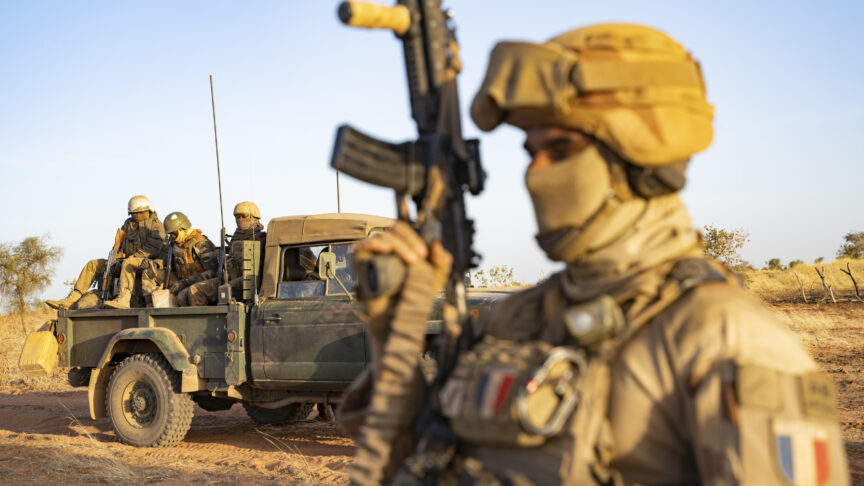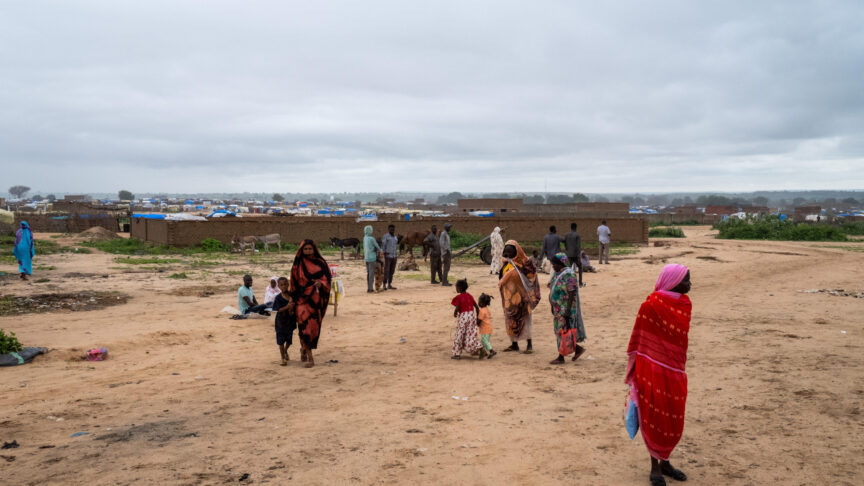Somalia’s election impasse: A crisis of state building
The EU can unblock the so-called “electoral impasse” paralysing Somalia by rejecting the involvement of the outgoing president. But it must also set out a new framework to help the country move forward
The four-year term of Somalia’s president, Mohamed Abdullahi Farmaajo, formally ended last week – but he has refused to leave office. With the federal parliament’s mandate also expired as of December 2020, Somalia now, for all intents and purposes, lacks legitimate, effective national government.
Farmaajo argues that his tenure should be extended until new elections can be held. Talks had been taking place about the rules governing the elections, but these have stalled. The international community has taken the position of “no partial elections, no partial processes”, and Farmaajo justifies staying on to avoid a political vacuum. But this position is disingenuous since Farmaajo is himself responsible for creating this situation by having stymied negotiations over the electoral framework. As elections drew nearer, Farmaajo stepped up gerrymandering efforts to the point where important federal member states and opposition candidates refused further negotiations on the electoral framework – in essence withdrawing from elections until Farmaajo leaves.
The European Union must stop referring to the current country’s predicament simply as an “electoral impasse” and recognise it for the grave constitutional and political crisis that it is. That includes excluding Farmaajo from finding the solution. With his tenure ended, and lacking widespread Somali popular support, he should be treated as nothing more than a political party representative, not the sitting president. While a road map to elections is urgently needed, embedded in that accord must be a reinvigorated commitment to the state-building project which has been so dramatically derailed by a four-year attempt at centralising power led by Farmaajo himself.
Backsliding state building: Farmaajo’s centralist agenda
It is not only elections that are at stake but also the entire trajectory of Somalia’s state-building process. For three decades since the collapse of General Mohamed Siyaad Barre’s military dictatorship in 1991, Somalia has struggled to re-establish a functional central government. Since 2000, successive transitional governments have tried, and failed, to earn domestic legitimacy and exercise de facto authority across the country. In 2012, due to slow but steady progress in institution building and a peaceful transfer of power, Somalia’s new federal government received international recognition for the first time in over 20 years. But the country’s provisional constitution was still incomplete and the architecture of the federation almost entirely undefined and subject to negotiation.
Over the past four years, Farmaajo waged a determined assault against the letter and spirit of Somalia’s provisional constitution
Between 2012 and 2016, the contours of Somalia’s federal republic began to take shape, and mechanisms for high-level political dialogue were established. But over the past four years, Farmaajo has rolled back this modest progress, waging a determined assault against the letter and spirit of Somalia’s provisional constitution, the tenets of its emerging federal system, and the principle of inclusive, consultative politics that is enshrined in the country’s basic law. After four years of political and institutional vandalism in which he strove to dismantle Somalia’s incipient constitutional order, Farmaajo and his followers have brought Somalia once again to the brink of institutional collapse and armed conflict.
Somalia’s federal government is still a provisional authority, anchored in an incomplete constitution that requires the nation’s leadership to carry out three core tasks to complete Somalia’s political transition: review the provisional constitution, build out the federal architecture, and develop an appropriate electoral system. These formidable challenges – and the failure to achieve them – lie at the heart of Somalia’s persistent instability and insecurity.
Farmaajo’s predecessor, President Hassan Sheikh Mohamud, was also inclined to unitary government and a strong central authority but he recognised the need for consensus and state building. Although his administration made only limited progress towards these goals, crucially, he presided over the coalescing of Somalia’s five federal member states and the establishment of a National Leaders Forum, comprising the Federal Government of Somalia and federal member states’ leadership, to agree on an electoral process and chart the way forward.
Farmaajo’s subsequent election was thus the result of a national bargain anchored in negotiated compromise. Consequently, his accession to the presidency was met by a surge of goodwill across the Somali nation. But rather than drawing on his inherited political capital to advance the state building project, Farmaajo pivoted aggressively to monopolise power and resources. Rather than engaging the federal member state leaders as partners, he perceived them as rivals and disbanded the National Leaders Forum. By the same token, he routinely ignored the upper house of parliament, which represents the interests of the federal member states, establishing key national commissions and signing critical legislation without the consent of the upper house or the political buy-in of the federal member states.
Starting in 2018, emboldened by promises of military support from regional allies and Qatari money allegedly funnelled through his intelligence chief, Fahad Yasin, Farmaajo embarked on a campaign of parliamentary gerrymandering, rigging elections in the federal member states in order to install pliant loyalists. In addition to bribery and patronage, Farmaajo deployed the federal security forces as instruments of political control, all but abandoning the fight against Al-Shabaab in favour of subjugating the federal member states.
Incapable of transcending his squabbles with the federal member states and political opposition, Farmaajo fell back upon the divisive and treacherous machinations of clan politics – a choice that would ultimately prove to be his undoing. In the federal member state of Jubaland, having failed to prevent its president, Ahmed Madoobe, from being re-elected in 2019, Farmaajo launched a military campaign to delegitimise Madoobe by wresting the south-western region of Gedo – inhabited largely by the president’s Marehan clan – from Jubaland’s control. By so doing, Farmaajo intended to administer the region directly from Mogadishu and ensure the election of loyalist MPs from his own clan. Madoobe and other leaders rejected this proposition, not only as arbitrary and unconstitutional, but because it would set an extremely dangerous precedent: what would prevent future presidents from carving up other federal member states and claiming direct federal control over their own clan territories? Madoobe and a chorus of other opposition leaders demanded that federal troops leave Gedo region and allow Jubaland to administer the election. By refusing to cede on this point, Farmaajo assumed the role of a Marehan clan politician and effectively forfeited any plausible claim to serve as president of all Somalis.
Scenarios
Farmaajo has clearly decided to remain in power until elections can be held – an option the opposition unanimously reject. Ironically, both sides initially looked to the lower house of parliament as their first recourse: Farmaajo hoped that the legislature would grant him a term extension until elections can be held, while the opposition has pressured Speaker Mohamed Mursal to accept the mantle of acting president in line with the provisional constitution. Both sides have so far been disappointed.
For Somalia’s opposition, any scenario that leaves Farmaajo as president is a non-starter. Their preferred option now seems to involve the formation of a Transitional National Council, including the federal member state presidents, opposition leaders and possibly others. This body would oversee the conduct of elections as soon as possible – ideally in less than six months – until a new parliament is formed and elects the next president.
The way forward
The greatest challenge to this proposal comes from Somalia’s international partners, who seem adamant that Farmaajo and his political appointees should play a role in the design of the transition.
This demand seems hard to justify: constitutionally, Farmaajo’s term of office has elapsed, whereas the federal member states remain constitutionally empowered by their own electoral mandates. Some political party leaders, both individually and collectively (through the Council of Presidential Candidates) also represent electoral constituencies and are arguably recognised under the provisional constitution as political stakeholders. Thus, in terms of creating a constitutionally legitimate way through the impasse it is the federal member states and major political parties that retain a mandate. Farmaajo might now be eligible to speak as a party leader or presidential candidate, but no longer as head of state.
More importantly, Farmaajo himself is the only stakeholder in the negotiations currently seeking re-election. He represents no broad constituency in Somali society, but giving him a seat at the table would offer his appointees, including the deputy prime minister and the director general of the National Intelligence and Security Agency disproportionate influence over the electoral process. In other words, if international actors’ concern is that Farmaajo could act as a spoiler, their fears are misplaced. On the contrary, by insisting that Farmaajo remain the incumbent president and must participate in political dialogue, foreign governments nourish his determination to cling to power and confer upon him an artificial veto over any solutions that may exclude him.
Europe’s role
The EU can play a crucial role in defining the international community’s position towards the transition.
Where other countries continue to press for a role for Farmaajo in the transition, the EU could send an important signal by omitting him from the equation. This position would be consonant with both constitutional and Somali political realities: Farmaajo’s tenure is over, there are other (still) politically mandated parts of the state to engage with, and the majority of official stakeholders in the elections vociferously favour this approach.
The second part of this approach weds the exit from the electoral impasse with rescuing the state building project. Any interim arrangement, such as the proposed Transitional National Council, should necessarily be limited in duration and mandate – the idea being to limit the period of extra-constitutionality that only a new presidential election can remedy.
But while the EU focuses its statements on the immediate electoral impasse, it can broaden its scope to address the root cause. The EU should state that the current deadlock is a product of the greater failure to both govern by consensus and prioritise the three core transitional tasks that Farmaajo’s administration ignored. The policy conclusion that follows from this should create conditionality for the next elected government: further investment in Somalia’s national institutions will depend on the government demonstrating willingness to advance these fundamental state building goals.
Historically, the scale of the EU’s investment in Somalia has been of such a magnitude that it has come at the expense of other Africa priorities: be that in aid or support for debt relief. The current crisis threatens decades of that investment. Now the EU’s political engagement should be commensurate to that investment.
The European Council on Foreign Relations does not take collective positions. ECFR publications only represent the views of their individual authors.



